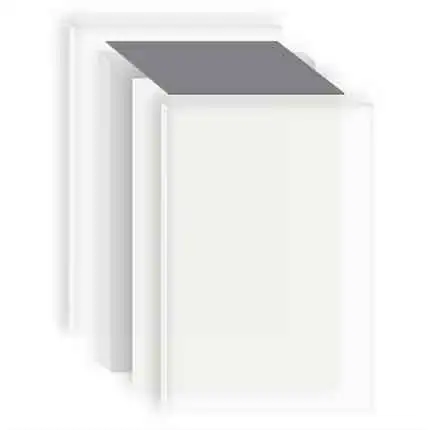
Smart glass, also known as switchable glass or dynamic glass, is a type of glass that can change its properties in response to external stimuli such as electrical voltage, light, or heat. This ability to alter characteristics like transparency, opacity, and color makes smart glass as one of speciality glass products a versatile and innovative material with applications in various industries.
Optional Glass | Ordinary float glass, ultra white glass, colored glass (toughened glass is not recommended) |
Glass Thickness | 5.5mm-40.5mm more or less (2+2-19+19) |
Interlayer Thickness | 1.5mm |
Drilling and Chamfer | Avaiable |
Storage Temperature | Minus 20 degrees Celsius to 60 degrees Celsius |
Working Temperature | Minus 10 degrees Celsius to 50 degrees Celsius |
Work Voltage | 24VAC,48VAC or 65VAC(Voltage over 65VAC is not safe) |
Light Transmittance | About 90% |
Privacy Distance | Any images that 3cm from the other side glass |
Visual Angle | About 140 degrees |
Average Energy Consumption | 5 watts/hour per square meter |
Normal Lifespan | Over 10 years |
1.1 Switchable Transparency: The primary feature of smart glass is its ability to switch between transparent and opaque states. This transformation can be controlled manually or automatically, offering flexibility in adjusting the level of privacy, sunlight, or visibility.
1.2 Electrically Activated: Smart glass typically relies on an electrically activated mechanism to change its properties. The application of an electric current alters the alignment of particles or the transparency of the glass.
1.3 Types of Smart Glass: There are several types of smart glass technologies, including electrochromic, liquid crystal, suspended particle, thermochromic, and photochromic. Each type operates based on different principles to achieve the switchable characteristics.
1.4 Energy Efficiency: In some cases, smart glass can contribute to energy efficiency by controlling the amount of sunlight entering a space. This can reduce the need for artificial lighting and air conditioning systems.
1.5 Privacy Control: Smart glass is used to create private spaces by changing from transparent to opaque. This is particularly valuable in office environments, residential settings, and healthcare facilities.
1.6 Security Applications: Smart glass can be used in security applications, such as switchable windows or partitions that can quickly change to an opaque state for enhanced privacy or security.
1.7 Aesthetic Versatility: Smart glass provides architects and designers with the ability to create dynamic and interactive spaces. It can be integrated into partitions, windows, skylights, and even entire facades.
2.1 Architectural Windows and Facades: Smart glass is used in windows, facades, and skylights to control the amount of sunlight entering a building and to create dynamic and responsive building envelopes.
2.2. Privacy Glass: Smart glass is employed in spaces where privacy is essential, such as offices, meeting rooms, bathrooms, and healthcare facilities.
2.3. Retail Displays: In retail settings, smart glass can be used for interactive displays or to create visually appealing storefronts.
2.4. Hospitality Industry: Smart glass is used in hotels and restaurants for aesthetic purposes and to create versatile and adaptive spaces.
2.5. Automotive Applications: Smart glass is used in automobiles for sunroofs, windows, and rearview mirrors to control light and glare.
2.6. Projection Screens: Switchable glass can be used as a projection screen, transforming from a clear window to a translucent or opaque surface for presentations.
2.7. Healthcare and Laboratories: Smart glass can find applications in healthcare environments and laboratories, providing adjustable privacy and control over light exposure.
2.8. Residential: In residential settings, smart glass can be used in windows, doors, and partitions, allowing homeowners to control privacy and sunlight.
Smart glass continues to evolve, and ongoing research and development are expanding its range of applications and improving its performance characteristics. The ability to dynamically control transparency and opacity makes smart glass a valuable technology in enhancing both the aesthetics and functionality of various spaces.
Pls contact us if you have any inquire or questions, thank you.
No.12111, JINGSHI ROAD, LIXIA DIST, JINAN CITY, SHANDONG PROVINCE, CHINA